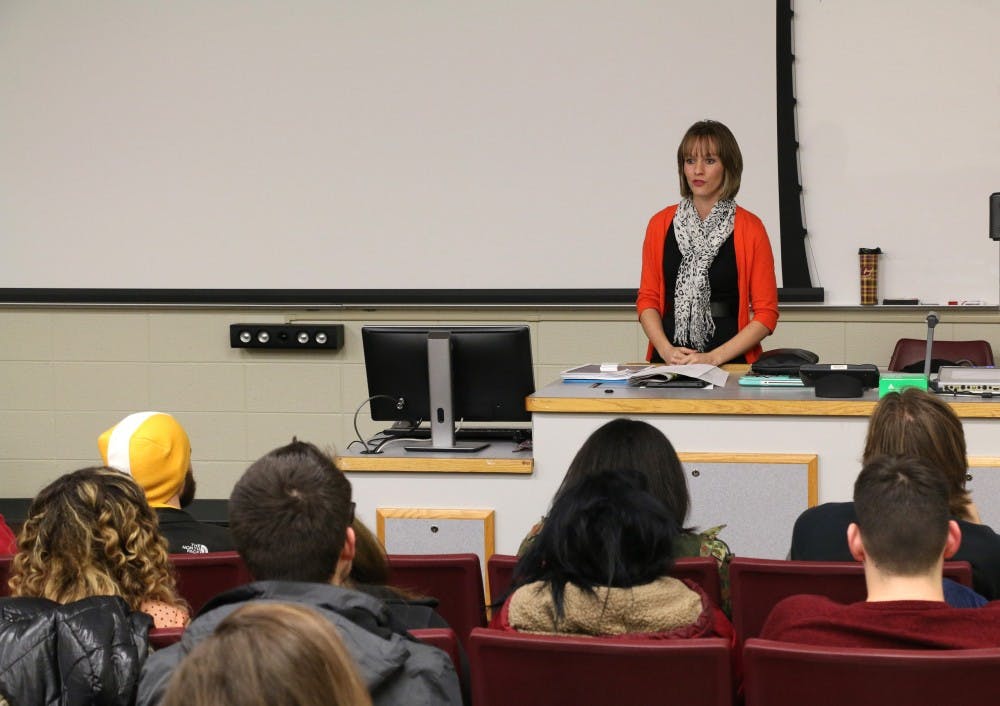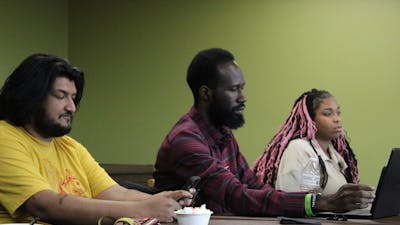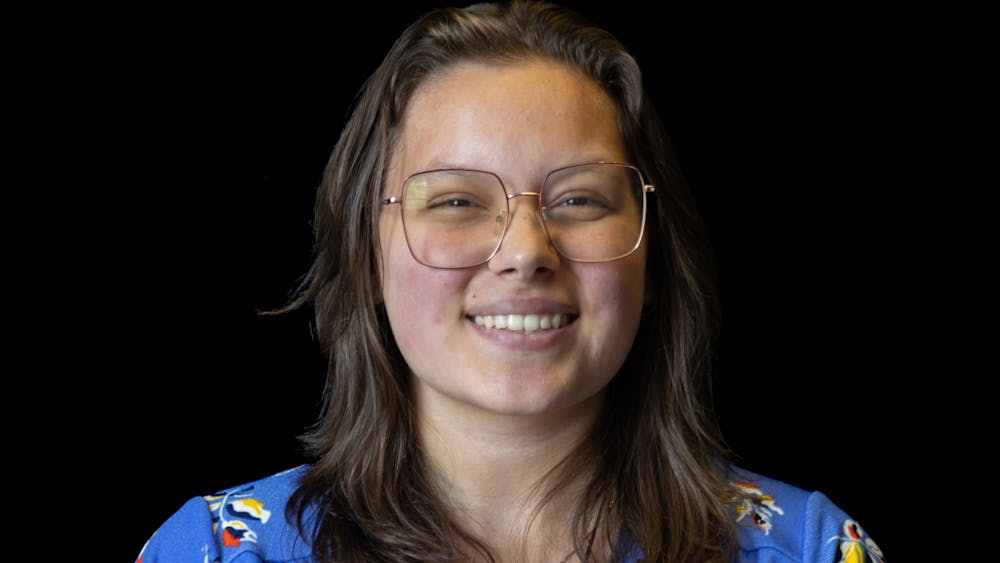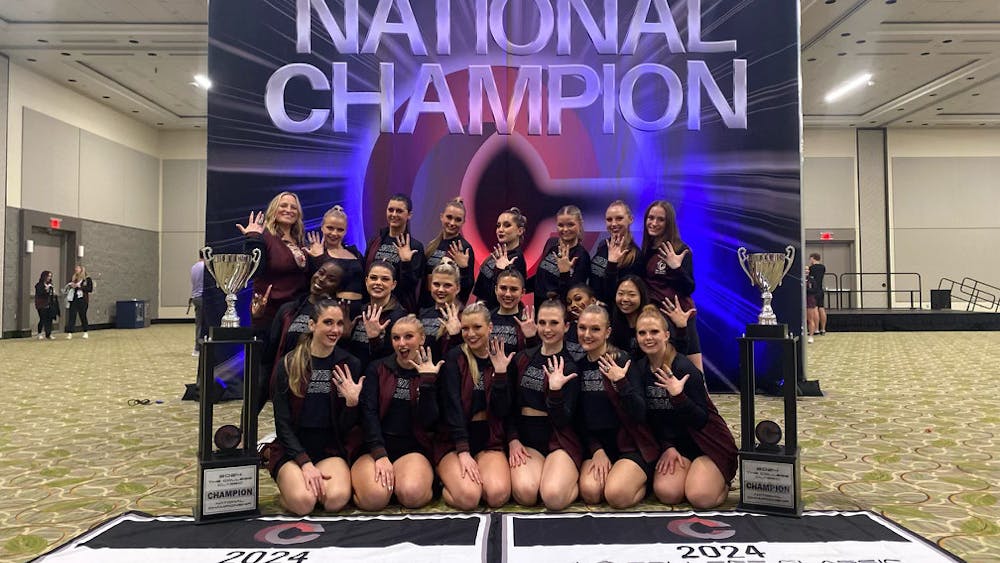Commissioner from Michigan Film Department visits National Broadcast Society

Michigan Film and Digital Media Department Commissioner Jenell Leonard visited the National Broadcast Society on Thursday Oct. 29.
Michigan Film and Digital Media Department Commissioner Jenell Leonard visited the National Broadcast Society Oct. 29 to present on the necessities of the film industry in Michigan.
The presentation began with a short promotional video explaining what the department does and how they are aiming to help prospective filmmakers or those interested in creation.
The club's president and Troy senior Catie Goines worked along side vice president and Charlotte junior Justin Steward and Intern at Michigan Film Department Rudi Parker to bring this presentation to life.
The department focuses on Michigan as a place to film and thrive. They help build partnerships with those in Hollywood and encourage people to film in Michigan. Many of the films coming up the department has provided incentives for, including studio and independent, or lower budget films. One movie, "It Follows" is a film made in Michigan, acclaimed by many critics as a top horror form of the decade.
In addition to working with film production, Leonard also highlights the new focus on digital media and integrating computer science into education. Stating that the industry is growing three times the state average.
"We just recently added digital media efforts," Leonard said. "We are trying to co-host digital media summits and create applications, mobile apps and other things that will further advance digital media. We're also working on partnerships with private companies on exploring digital media opportunities, more specifically computer science."
A large part of the discussion was centered on internships and how the students could develop their skills and network with people in the business. The internships offered through the department aim to expose students to film production and creative opportunity.
They consist of some office work, attending workshops, collaborating with advisory council and organizing tours based around films that have been produced in Michigan.
"The whole point of these internships and my job in general is helping these creative millennials grow," Leonard said. "We want to do what we can to help stabilize, sustain and help creators grow. I always tell people that nothing is ever too good or too bad for you."
Leonard also discussed the opportunities in Michigan and how they differ from city to city. Detroit is primed to compete with Hollywood when it comes to filming and things are starting to urbanize including the innovation of "Tech Village." Grand Rapids is a center for indigenous industry and personal art. She also promoted the state as a creative hub and the spot to be for creative industry.
While talking about working in office jobs compared to making one's own hours, Durand senior Kayla Cooney addressed some of her concerns about staying in Michigan and being able to find a job.
"A lot of the time the jobs we hear about are very broad and places like California advertise the freedom that we want in the creative industry," Cooney said. "A lot of people see that Michigan isn't the most economically stable, so most are afraid to be stuck. If there are specific opportunities, it's important for us to actually learn about them."
The Michigan Film Department used to work by giving incentives for prospective filmmakers, who had to come up with the production in three years. After Proposal One was denied, budgets had to be cut and the incentives were one of the first to go.
Before the incentives ended, however, the department signed 24 productions. In addition to this, the department makes sure filmmakers have permits and see if they need any extras or crew members.
"I try to spend one day in Detroit and one day in Grand Rapids a week," Leonard said. "I meet with people and see what's happening around the cities. I build relationships with people doing creative projects and try to help them grow their businesses."
The BCA students were encouraged to reach out to local offices or entertainment agencies and seek out opportunities for internships. It was stressed that students are open and honest about their goals and needs when looking for opportunities.
There are many possibilities for prospective filmmakers and creators if they put themselves out into the field, Leonard said.







